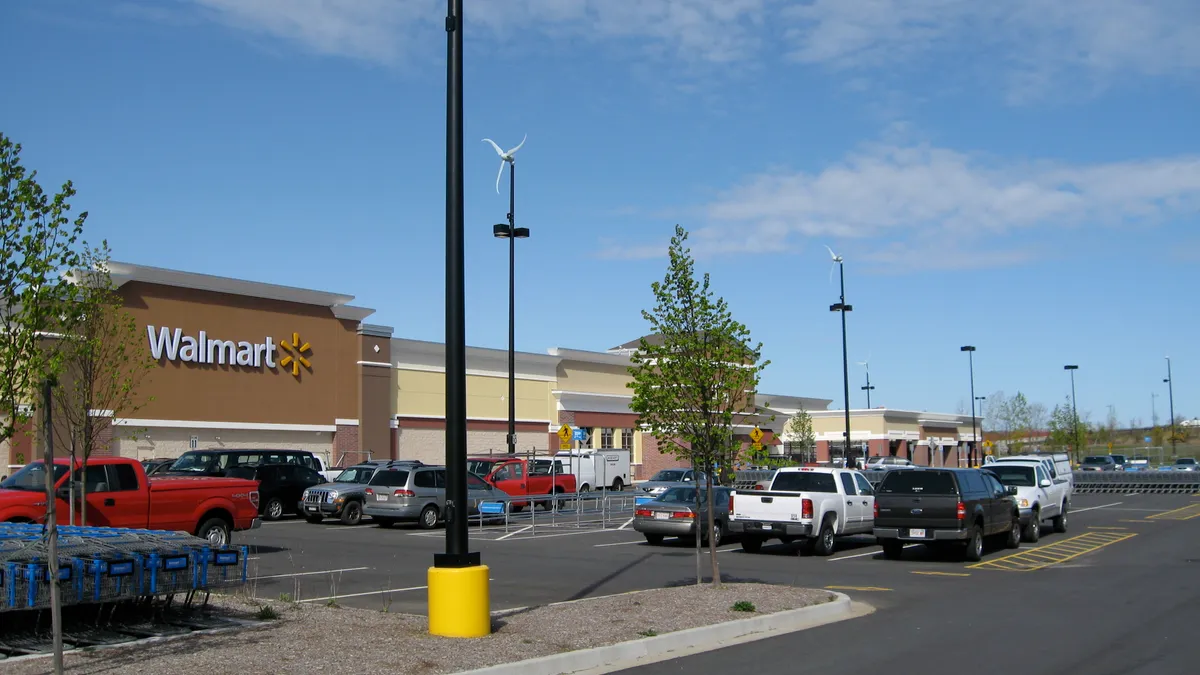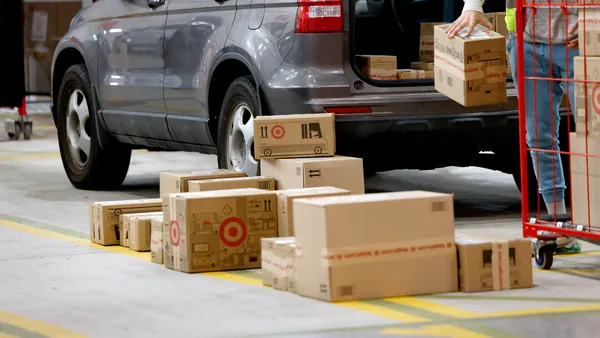Dive Brief:
- More than 2,300 suppliers have signed on to Walmart's Project Gigaton, its effort to avoid one billion metric tons of greenhouse gases from its global supply chain by 2030, the retailer announced in its most recent Environmental, Social and Governance report.
- Folding suppliers into the effort will help Walmart reduce its Scope 3 emissions, defined as emissions throughout a company's value chain. In 2019, 1,000 suppliers collectively reported 136 million metric tons (MMT) of avoided emissions, the report notes. This brings the company to a cumulative 230 MMT of avoided emissions since 2017.
- Walmart also reported its progress on waste with 80% of unsold products, packaging and other material being diverted from landfills and incineration, with most of it recycled or reused, and smaller amounts going to donations or animal feed. The retailer's goal is to achieve zero waste operations by 2025.
Dive Insight:
In addition to Project Gigaton, Walmart is also working to cut emissions from its own operations (Scope 1 and 2) by increasing energy efficiency, improving its refrigeration system and investing in a more sustainable fleet.
The retailer reported a 3.8% reduction in the emissions of its own operations between 2017 and 2018.

Walmart has significantly higher emissions than other retailers, though it also has significantly higher sales. Kroger and Albertsons had the second and third highest emissions among top-earning retailers, according to 2018 numbers from the CDP.
Still, Walmart's efforts on reducing emissions have been enough for the CDP to give the retailer an A- on its 2018 disclosure and an A on its 2019 disclosure. It earned less praise for its Forest and Water disclosures, both of which earned a C from the CDP in 2019.
But Mikel Hancock, the senior director of sustainable food and agriculture at Walmart, said the retailer has begun "to pilot engagement on deforestation by asking suppliers to disclose their forests information through CDP Supply Chain," according to CDP's most recent supply chain report.
In an earlier CDP report, a Walmart executive is quoted saying the retailer relies on CDP's Supply Chain program when working with its suppliers to cut emissions through Project Gigaton. Walmart provides resources to its suppliers that include calculators to help set and report goals, and it offers workshops on best practices.
Whittling away at Scope 1 and 2 emissions largely means making internal changes, but reducing Scope 3 emissions can't be done unless firms get suppliers involved. A reduction in extended supply chain emissions is particularly important to meeting overall sustainability goals, because Scope 3 makes up nearly 89% of Walmart's total emissions, according to data from CDP and the retailer.
Walmart acknowledges getting suppliers on board is one potential stumbling block in its goals for emissions reduction.
"Because success depends on the collective efforts of many, as well as factors such as technical advances, policy changes, economic and price volatility, and supplier engagement, there may be times when we fall short," the retailer notes in the report.
Walmart noted that the reporting period for this emissions update ended before the pandemic, therefore it doesn't touch on COVID-19's impact on the company's goals.














